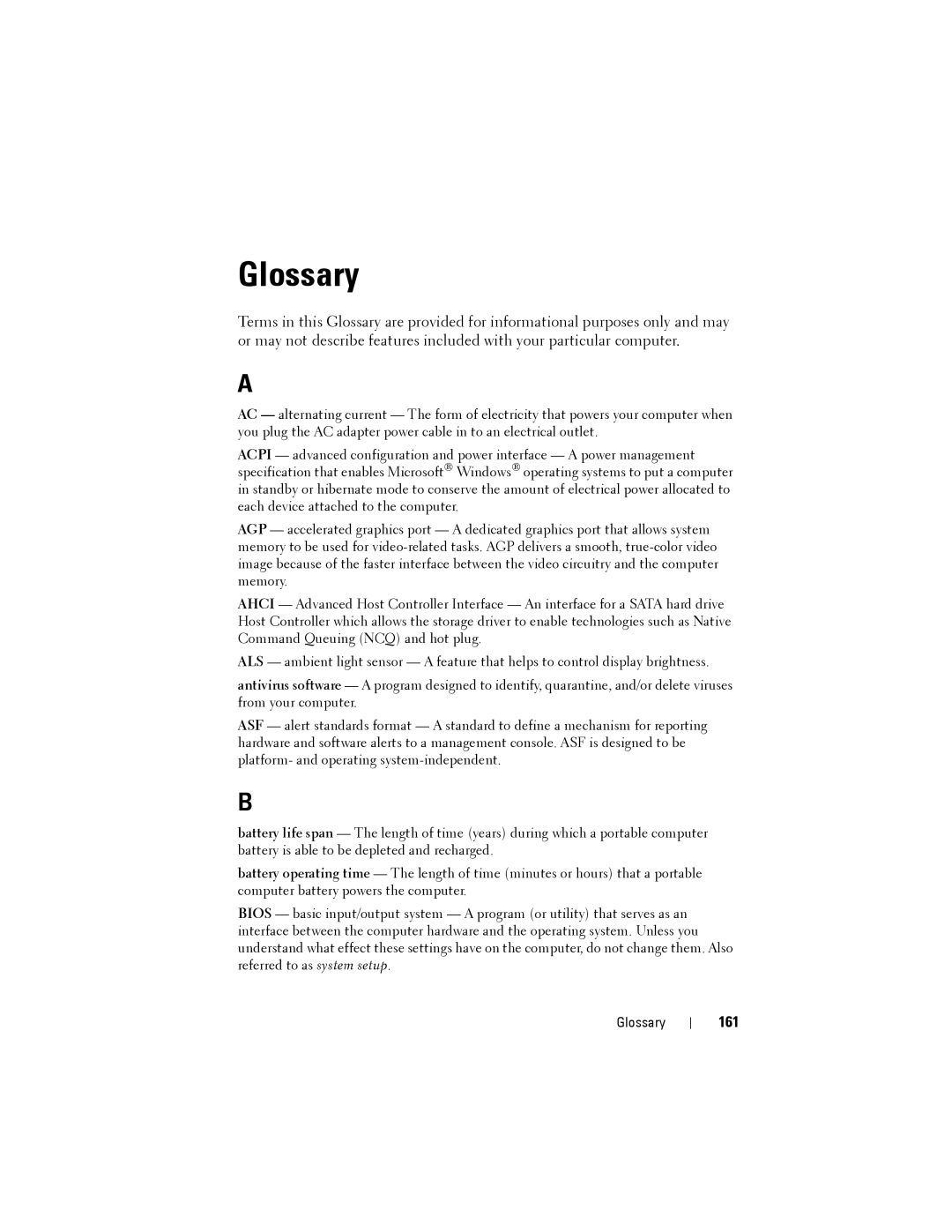Glossary
Terms in this Glossary are provided for informational purposes only and may or may not describe features included with your particular computer.
A
AC — alternating current — The form of electricity that powers your computer when you plug the AC adapter power cable in to an electrical outlet.
ACPI — advanced configuration and power interface — A power management specification that enables Microsoft® Windows® operating systems to put a computer in standby or hibernate mode to conserve the amount of electrical power allocated to each device attached to the computer.
AGP — accelerated graphics port — A dedicated graphics port that allows system memory to be used for
AHCI — Advanced Host Controller Interface — An interface for a SATA hard drive Host Controller which allows the storage driver to enable technologies such as Native Command Queuing (NCQ) and hot plug.
ALS — ambient light sensor — A feature that helps to control display brightness.
antivirus software — A program designed to identify, quarantine, and/or delete viruses from your computer.
ASF — alert standards format — A standard to define a mechanism for reporting hardware and software alerts to a management console. ASF is designed to be platform- and operating
B
battery life span — The length of time (years) during which a portable computer battery is able to be depleted and recharged.
battery operating time — The length of time (minutes or hours) that a portable computer battery powers the computer.
BIOS — basic input/output system — A program (or utility) that serves as an interface between the computer hardware and the operating system. Unless you understand what effect these settings have on the computer, do not change them. Also referred to as system setup.
Glossary
